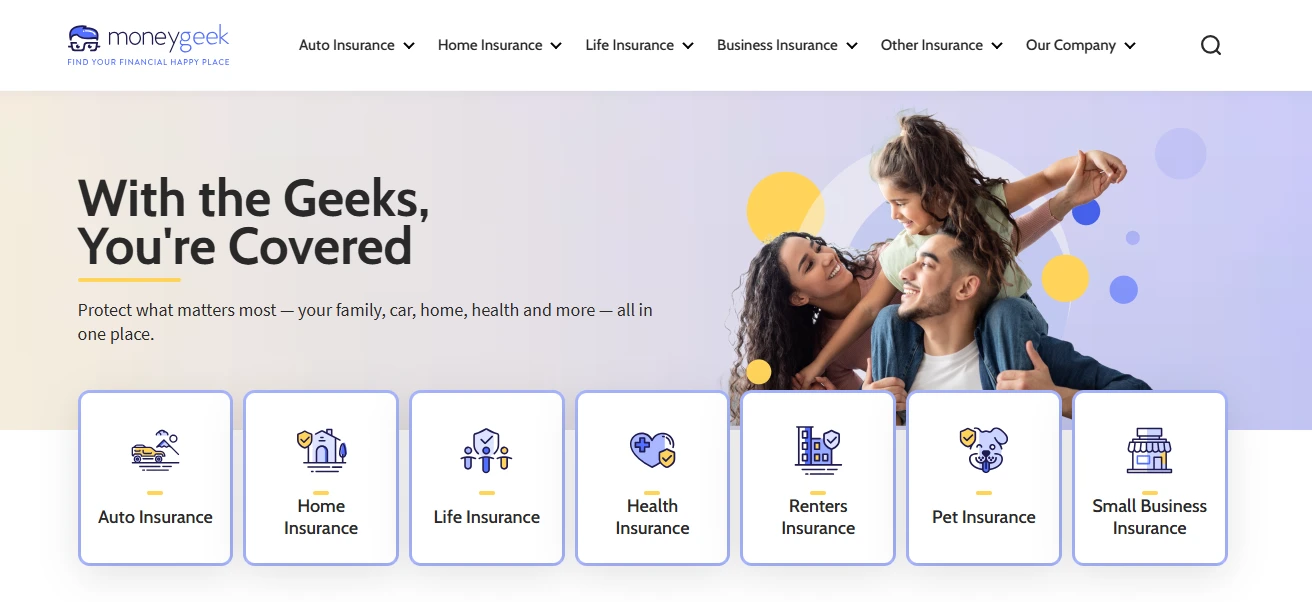Key Takeaway
By adding a "Car Insurance Toolbox" sidebar that linked to high-converting, intent-matched content, MoneyGeek increased quote comparison conversions by 13%. This change also improved engagement metrics, including session time and internal clicks, while maintaining a clean user experience.
Client Overview
MoneyGeek is a US-based personal finance platform that helps users compare and select cost-effective financial products, including insurance, credit cards and loans. Its SEO-driven model attracts more than 1 million unique monthly visitors (according to Similarweb), most from highly targeted search queries.

Opportunity Background
Our focus was on the car insurance section of the site, where users convert by entering their zip code and clicking a "Compare Quotes" CTA. While the hero and sticky sidebar CTAs served high-intent users well, we saw an opportunity to engage lower-intent or research-driven visitors by improving access to relevant content.
Scroll depth and session analysis showed that users who visited more pages were significantly more likely to convert. This pointed to a clear opportunity: encourage deeper exploration by making key tools and resources more accessible throughout the user journey.
Solution
We introduced a sticky " Car Insurance Toolbox" in the right sidebar. This navigation block is linked to high-performing, high-intent pages such as insurance calculators, cost-saving tips, and minimum coverage guides. To make room for the toolbox and improve clarity, we also moved the existing sticky "Compare Quotes" CTA from the sidebar to a sticky banner at the bottom of the page.
Results
The updated variation led to a 13% increase in quote comparison conversions across all car insurance pages. Users who interacted with the new toolbox were 45% more likely to convert, and overall engagement improved, with longer sessions and more internal link clicks. While the bounce rate increased slightly, the increase in conversions and engagement validated the effectiveness of the changes.